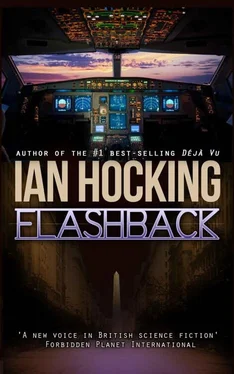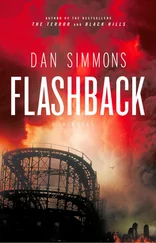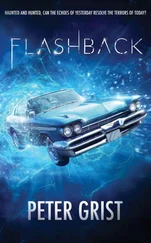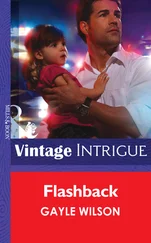So away. The agent called me back yesterday with the ‘thanks but no thanks’ speech. Very polite, and refreshingly honest. He got half way through the book and decided that he would not be able to champion it at meetings.
Arf. Mood meter drops somewhat.
I’m appropriately jaundiced about this industry. I mean, it’s getting on for eleven years since I sold my first short story as a teenager, and in that time I’ve written four-and-a-half novels. I’ve read a number of good books and a number of crap ones. I’m aware that publishing is a lottery, and I’m aware that a writer is, essentially, a foolish person who works—often for years—in the face of long odds. The writer doesn’t expect the reward of fame, or fortune. Like a carpenter or any other manual worker, he only wants people to buy his stuff so he can afford food while he’s making the next thing.
Me: ‘Can I interest you in this lovely mahogany number? I made it myself. Took me five years, and the sideboard-critics love it.’
Customer: ‘No, thanks. We just bought a sideboard from Ikea.’
Me: ‘Why? They’re flat-packed. They’re mass-produced and lack heart. Look, I’ve carved little mice into the legs. They’re practically scampering. Here, micey -’
Customer: ‘But our sideboard has a vaguely sexual Swedish name. It’s called Smegsmog. And everyone’s talking about it. The Stockwells at number five just bought one, for Christ’s sake.’
Me: ‘But what about the sideboards of tomorrow? What if they only came from Ikea?’
Customer: ‘Good-bye. You might shift more units if you served meatballs.’
Anyway, reasons to be cheerful: (1) If Déjà Vu attracted one agent, it might attract another; (2) Wonderful girlfriend, who seems to believe in me despite these constant messages replies of ‘not good enough’ from publishers and agents; (3) Good health; (4) Blog on which I can moan.
Arf.
An excerpt from my blog, 25th February, 2006. Read the original.
Well, as promised, the Saturday post will be less of a navel-gazing enterprise than usual. Below I include the usual word gauge for progress on current novel Flashback, and it appears that I’ve only written four thousand words in the past week. This is a poor show quantity wise (fortunately, I don’t have a deadline). I can trace the problem to a complete lack of research.
OK; not a complete lack. I spent most of last summer reading about aviation, and now my knowledge of aircraft safety and the principles of lift are second to none (I’m using ‘none’ in the special sense that means ‘Practically everybody’). Regrettably, not much of a novel comprises technical asides on power-to-mass ratios. Everything is seen through the lens of character. This means lengthy diversions into, for example, the size of an Avro Lancastrian cockpit; how much a passenger might see and hear if he stood at the rear of the flight deck. Halfway through a sentence I realize I’m talking bollocks and, grabbing my surfboard, run into the cool water of the Information Superhighway and come across a site like this—solid gold! This guy will certainly get a big thank-you in the acknowledgments when Flashback sees the light of day. It inhibits the word count somewhat but results in some excellent material that will place the reader precisely inside my imagination.
An excerpt from my blog, 25th February, 2006. Read the original.
Well, today I wrote the final words of my current book, a technothriller called Flashback. (The final words? ‘Like a ghost.’) The first draft comes in at 125,410 words, which is shade over the word count I aimed for when I started the manuscript in November. It’s only the first draft, but there’s not just the satisfaction of having written the book—there is also the knowledge that the story works. I wouldn’t go as far as to say that the story worked as well as it could; for that, it will take some months of editing. But the story did grip me as I wrote it (there were no moments of writer’s block, whatever that is) and if it doesn’t work on the page in its present form, that probably means some superficial rearrangement is necessary. I say ‘superficial’ rather lightly, of course. Superficial changes like ‘make this scene less intense’, ‘improve this character’s motivation’ and so on will seem progressively unsuperficial as the editing process bites.
I’ve noticed some posts over on John Barlow’s blog and Grumpy’s about the amount of time some novelists spend writing a book. In some senses, the question is a little like ‘How long does it take to build a house?’ Depends on the amount of land, your materials, and what you want to end up with. But since I’ve just finished the first draft, it might be apposite to consider how the writing process went.
Flashback began as a loose collection of ideas at the beginning of last year (around May, when I was coming to the end of Proper Job). I knew I wanted to write more about a character called Saskia Brandt, from my first novel, Déjà Vu. Spoiler alert: Saskia has traveled backwards in time to the year 2002. She has already seen herself as a middle-aged woman in the year 2023 (still following?), so she knows that, at least until the year 2023, she cannot be killed. I wondered how this would make Saskia feel. Fearless, because she can’t die? Trapped, because she understands that all her actions have been predetermined? Anyway, I had an image of Saskia climbing aboard a aircraft to ensure—for a some reason—that it would not crash. In its final form in the book, the idea is a little different, but the spirit of the idea remains. I had other flashes of ideas: Saskia is German, and I wanted to incorporate the connection that Germans feel with the forest; I wanted to have an English character lost in Germany too, perhaps to serve as a proxy of the disconnection that Saskia must feel, since she is stranded in our time.
Following a ‘research’ trip to the Bavarian National Forest in July of 2005, I read up on aircrash investigation, re-read the Grimm fairytales, and stared out of windows a great deal. Towards the end of my research, I came across an interesting aircrash in the Andes (the crash of the Star Dust). This wasn’t the first time I’d heard about that crash, having seen the excellent Horizon documentary a few years ago, but it fit perfectly into the revenge backstory. I knew, immediately, the fate of the Star Dust was—in my fictional world—connected to the crash of Saskia’s plane in 2002. That was the point I knew I had a book’s worth of story.
There were a couple of surprises along the way. The finished book didn’t turn out anything like the rough synopsis I had when I started (summarisable in a sentence). Another surprise came in the form of the nature of the book; I thought it would be a sequel to Déjà Vu, but the book is basically standalone. It actually took a little longer to write than I thought, too. I started writing on Friday 21st October 2005. Aim: Write 1000 words per day, seven days a week. My work rate was 820 a day, so I missed the target. But some days were research intensive, and I was careful to avoid those ‘brain warming up’ paragraphs that would eventually need to be removed during editing, and I treated the prose like I was writing a short story: tight, to the point, and entertaining.
So, the process of writing Flashback has been a positive one. Some of the days were long, some were dark, but there were no times when the story got hard to write; the characters were always engaging and it was never difficult to ‘fall through the hole in the paper’, to use a Stephen King phrase. And now, if you’ll excuse me, I will adjourn for a beer.
Читать дальше












